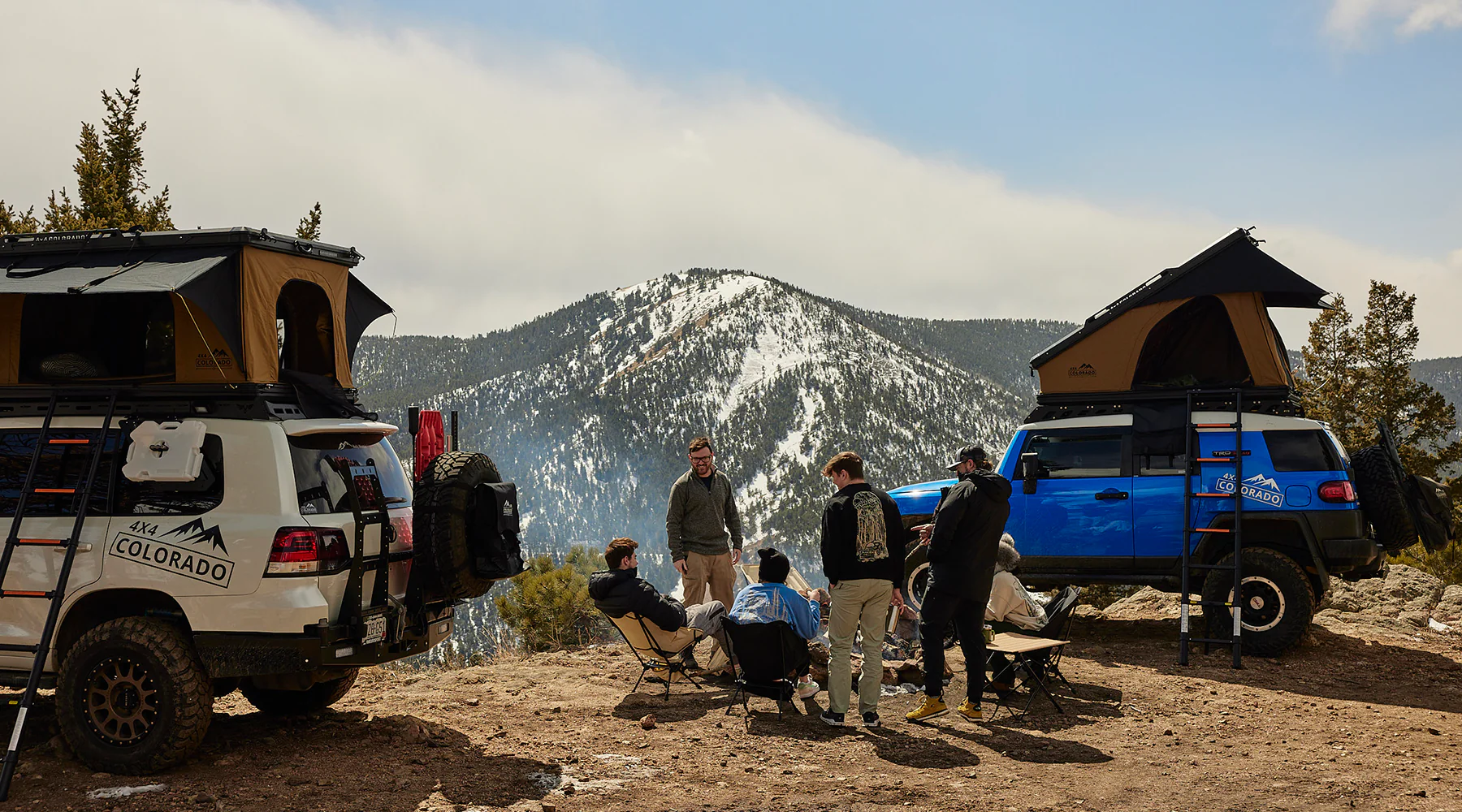Benefits of a roof tent vs the traditional ground tentUpdated 2 years ago
Pros of RTT:
Comfort — the integrated mattress is better than any thermarest, and you are insulated from the sometimes cold or wet ground much better.
Convenience — keeping all your sleeping kit stored in the tent is handy and gives more room elsewhere for stuff. Plus not having to re-stuff a sleeping bag every day is nice AND easier on the bag.
Set Up — setting up an RTT is pretty fast. We can go from loaded/pulling into the campsite to sleeping in less than 5 minutes. We can sometimes do this with a ground tent but only at established sites with a tent pad, otherwise you can be looking around for a long time for a good patch of ground.
Safety — being up off the ground feels a bit safer. A real hungry critter can get in, but it’s elevation means it’ll have to work at it, but even if it’s mostly placebo, feeling safer means better sleeps.
Flexibility — you never need to worry about stones, roots, ant hills, etc. Which can make setting up a ground tent a challenge. As long as your rig is reasonably level, you can make camp. I’ve camped in some areas where a ground tent wouldn’t have been a good option (like near a river on stones) but the RTT worked great. We can also stay in RV parks if we need to — most RV parks may not allow Tenting but do allow RTTs because they are more like an RV. Some are balking at this but in our experience a lot of cities will have a convenient RV park and if part of your adventure is exploring a city this is handy. For example we did a trip to California and wanted to see Disneyland. Nearest camp space was over an hour away, but there was an RV park less than a mile from the Disney gates.

Cons:
Cost — Dollar for dollar, a ground tent costing the same as a roof top tent will be overall a far better product, so ground tents are cheaper by a wide margin. For the cost of even a budget RTT you can get the best 3 season tents on the market.
Weight - the lightest RTT I’m aware of on the market is still around 100 lbs. If you are in a Jeep, that is 13% of your payload just on your tent. Most are closer to 150 lbs.
RTTs are generally better for 4x4 touring for the reasons above — where every day is a new camp location. But if you are going out to run trails from a base camp, an RTT actually makes things harder unless it’s on a trailer. So a lot of it depends on your trip style — overlanding (different place each night) or camping (same spot out in the sticks for a few days).